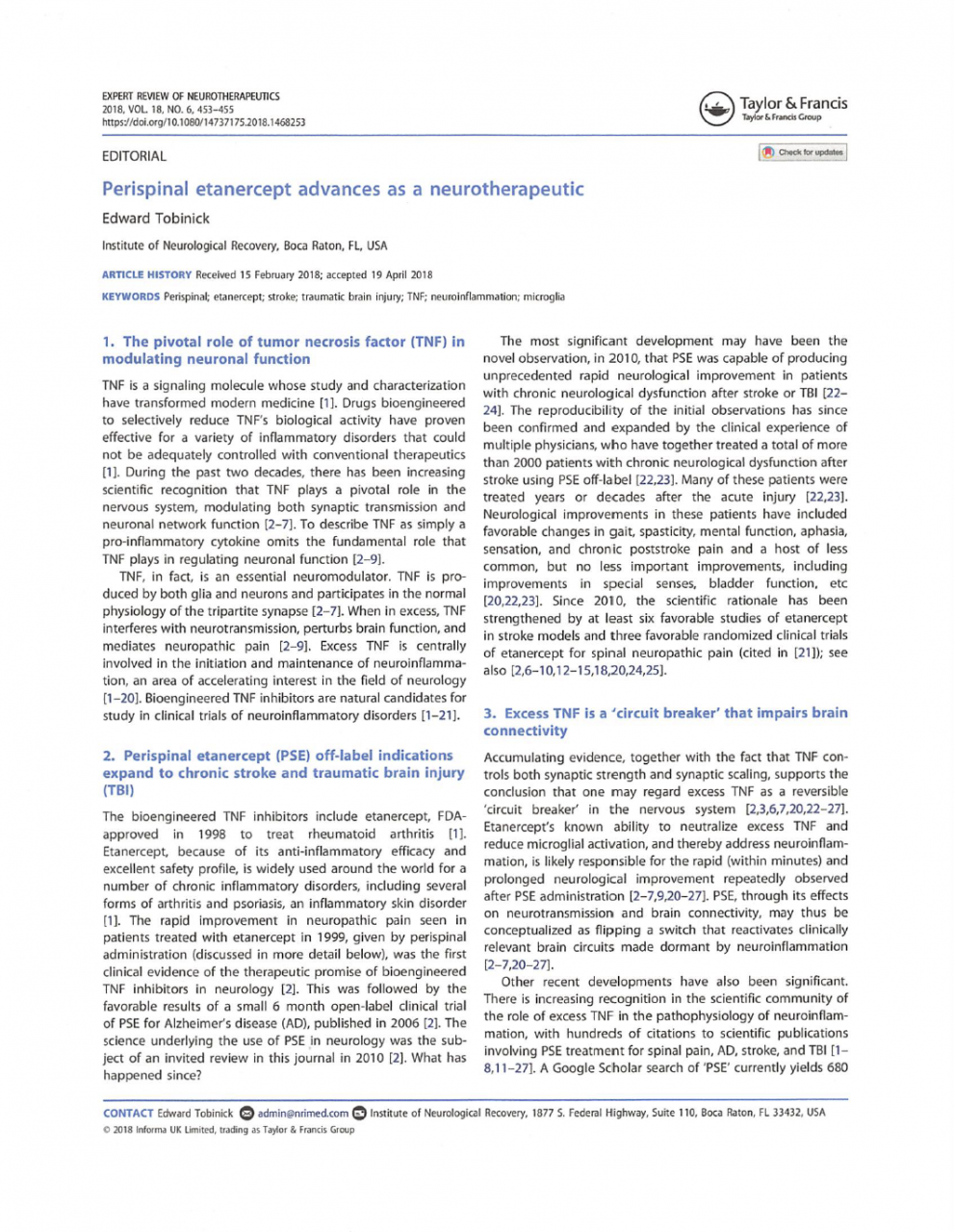
Invited editorial by Edward Tobinick, MD, entitled, “Perispinal etanercept advances as a neurotherapeutic” published in Expert Review of Neurotherapeutics, on April 25, 2018.


Invited editorial by Edward Tobinick, MD, entitled, “Perispinal etanercept advances as a neurotherapeutic” published in Expert Review of Neurotherapeutics, on April 25, 2018.
“Perispinal Etanercept for Traumatic Brain Injury” is Chapter 7 of the medical textbook New Therapeutics for Traumatic Brain Injury. See the abstract and links below:
“Abstract
Brain dysfunction after traumatic brain injury (TBI) may involve a persistent neuroinflammatory response that can last for years following acute brain insult. This neuroinflammatory response may include microglial activation and persistence of excess levels of tumor necrosis factor (TNF) in the brain, resulting in perturbation of brain function. TNF, in addition to its role as the master regulator of the inflammatory response, is a key regulator of synaptic function in the brain. Experimental data suggest that etanercept, a selective TNF inhibitor, may ameliorate microglial activation; modulate the adverse synaptic effects of excess TNF; and favorably intervene in basic science models of TBI, stroke, subarachnoid hemorrhage, and Alzheimer’s disease. Perispinal administration is a therapeutic method designed to use the cerebrospinal venous system to enhance selective delivery of etanercept across the blood–cerebrospinal fluid barrier. Increasing clinical data suggests that perispinal etanercept (PSE) has therapeutic utility for treatment of selected brain disorders associated with elevated TNF, including chronic neurological dysfunction following stroke and various forms of brain injury. PSE is an emerging treatment modality for TBI.”
Institute of Neurological Recovery
1877 S. Federal Hwy.
Suite 110
Boca Raton, FL 33432
Phone: +1 (561) 353-9707
The Institute of Neurological Recovery® (INR®). A decade of pioneering discoveries in medicine. The INR utilizes the pioneering, patented perispinal etanercept (PSE) treatment methods invented by its founder and Medical Director, Edward Tobinick, M.D. The contents of this website, including text, images, and videos are ©2022 INR PLLC, all rights reserved.
© Copyright 2010-2025 Institute of Neurological Recovery Edward Tobinick M.D. All Rights Reserved.